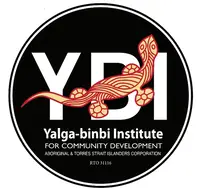
Yalga-binbi Institute for Community Development
Certificate II in Conservation and Ecosystem Management
Nationally Recognised Vocational Education and Training (VET)This qualification provides the skills and knowledge required for work in a defined context and/or for further study in conservation and ecosystem management. Work would be carried out under general guidance and supervision.
The qualification enables individuals to select and develop basic factual, technical and procedural knowledge in conservation and ecosystem management for Indigenous land management, lands, parks and wildlife services and the restoration and rehabilitation of ecosystems.
No licensing, legislative or certification requirements apply to this qualification at the time of publication. Users are advised that individual elective units selected may have licensing, legislative or certification requirements and are advised to check the units individually for these requirements.
Delivery mode
Yalga-binbi Institute for Community Development offers this course through the following delivery modes:
On campus
Work with instructors and classmates in a supportive and collaborative environment.
- 2 Marina Dr, Burnett Heads
Entry requirements
Domestic Students
- There are no mandated entry requirements.
Course fees
For more information about this course and payment options please enquire now.
Career opportunities
The Certificate II in Conservation and Ecosystem Management will prepare you for the following roles.
Conservation Trainee
A Conservation Trainee undertakes various roles on environmental projects while doing training in conservation work. You might work for a governmen...
Spotter Catcher
A Spotter Catcher tracks down wildlife before land clearing takes place. You’ll catch identified animals and relocate them to a suitable place. Spo...
About Yalga-binbi Institute for Community Development
Yalga-binbi Institute for Community development Aboriginal and Torres Strait Islanders Corporation RTO: 31116 is an established registered training organisation based at the 2 Marina Drive, Burnett Heads 4670 at the Port of Bundaberg. Yalga-binbi aims to provide skills and knowledge primarily for Indigenous people both in the Central Queensland and Wide Bay regions and, throughout Queensland where required.
